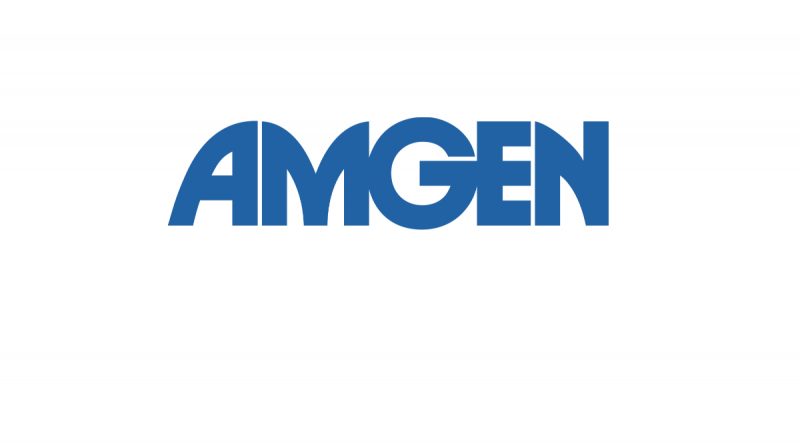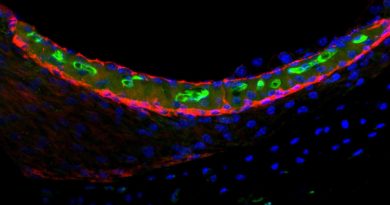NICE Recommends KYPROLIS® (carfilzomib) with Lenalidomide and Dexamethasone (KRd) for Multiple Myeloma
The National Institute for Health and Care Excellence (NICE) has recommended carfilzomib in combination with lenalidomide and dexamethasone (KRd) for the treatment of multiple myeloma in adults after one previous therapy which included bortezomib, in its Final Appraisal Document issued in March.
Final Appraisal Document Recommends KRd for the treatment of Multiple Myeloma in adults after one previous therapy which included Bortezomib
The NICE decision to recommend KRd is based on clinical evidence from the Phase 3 ASPIRE trial in patients with relapsed multiple myeloma who had received one to three prior treatments. Amgen has made a commercial arrangement with the NHS to make the KRd recommendation available.
Effective combination therapies are required for patients when they relapse or become refractory to their current treatment. For several years, Amgen has worked collaboratively with NICE and other stakeholders, including clinicians and patient advocacy groups, to help overcome the barriers that can prevent access to combination therapies for patients with serious diseases such as multiple myeloma.
Dr. Tony Patrikios, executive medical director at Amgen UK and Ireland said:
“The relapsing-remitting nature of multiple myeloma can be psychologically very difficult for patients. Working collaboratively with our partners in the NHS and patient advocacy groups, there has been a strong tenacity to make this treatment combination cost effective and available to patients with multiple myeloma. We welcome this recommendation from NICE which provides another treatment option for patients whose disease has relapsed.”
Multiple myeloma is a complex disease that is characterised by periods of remission and relapse. Approximately 5,700 people in the UK are diagnosed with this incurable disease every year. Multiple myeloma accounts for 15% of blood cancers and 2% of all cancers in the UK.
Laura Kerby, chief executive of Myeloma UK said:
“This approval is great news for the myeloma community, and we are delighted with the decision. Myeloma is an incurable and very individual cancer and this decision means more patients can benefit from the better responses to treatment at an early stage that a triplet regimen can offer. The NICE decision also means that, regardless of where they live in the UK, patients now have equal access to the treatment they need and want. Myeloma UK is committed to ensuring that patients benefit from the latest therapies like triplets, and this is the most recent example of how our approach to partnership working makes that a reality.”
The NICE Final Appraisal Document was published on 19th March but will not become NICE Guidance for the NHS in England and Wales until 28th April 2021.
About carfilzomib
Myeloma cells are particularly susceptible to proteasome inhibition. Proteasomes play an important role in cell function and growth by breaking down proteins that are damaged or no longer needed. Carfilzomib blocks the function of proteasomes, leading to an excessive build-up of proteins within cells and myeloma cell death.
Kyprolis® in combination with daratumumab and dexamethasone, with lenalidomide and dexamethasone or with dexamethasone alone is indicated for the treatment of adult patients with multiple myeloma who have received at least one prior therapy.
About the Phase 3 ASPIRE Trial
KRd demonstrated a prolonged median Progression-Free Survival of 26.3 months compared with 17.6 months with lenalidomide and dexamethasone (Rd), with a hazard ratio of 0.66; 95% Confidence Interval (CI), 0.55 to 0.78; P = 0.0001). KRd also increased median overall survival compared with Rd from 40.4 months to 48.3 months (hazard ratio 0.79; 95% CI, 0.67 to 0.95; P = 0.0045) 1,2.
The safety data from ASPIRE was consistent with the known safety profile of carfilzomib. The most common adverse events (greater than or equal to 20 percent) in the carfilzomib arm were diarrhoea, anaemia, neutropenia, fatigue, upper respiratory tract infection, pyrexia, cough, hypokalemia, thrombocytopenia, muscle spasms, pneumonia, nasopharyngitis, nausea, constipation, insomnia and bronchitis7.
About Amgen Oncology
Amgen Oncology is searching for and finding answers to incredibly complex questions that will advance care and improve lives for cancer patients and their families. Amgen’s research drives the company to understand the disease in the context of the patient’s life – not just their cancer journey – so they can take control of their lives.
For the last four decades, Amgen has been dedicated to discovering the firsts that matter in oncology and to finding ways to reduce the burden of cancer. Building on its heritage, Amgen continues to advance the largest pipeline in the Company’s history, moving with great speed to advance those innovations for the patients who need them.
Amgen is driven by its commitment to transform the lives of cancer patients and keep them at the centre of everything the company does.
About Amgen in the UK and Ireland
Amgen is committed to the relentless pursuit of breakthroughs and making a sustainable contribution to healthcare. A biotechnology pioneer since 1980, Amgen serves patients by transforming the promise of science and biotechnology into therapies that have the power to restore health or save lives.
Amgen develops innovative medicines in cancer and long-term conditions by using advanced human genetics to unravel the complexities of disease and understand the fundamentals of human biology. As one of the most forward-thinking and innovative biotech companies, Amgen’s growing portfolio of medicines tackle some of the biggest healthcare burdens facing society today.
The Amgen community in the UK and Ireland is one of Amgen’s largest outside of the company headquarters in California and is a European hub for research and development. More than 500 people at Amgen in the UK and Ireland contribute to the journey that turns molecules into medicines, and in 2020 approximately 260,000 UK and Irish patients were treated with Amgen medicines.
Source: Amgen – Press Release – CAMBRIDGE, UK — (23 March 2021)
Ad
More Headlines




